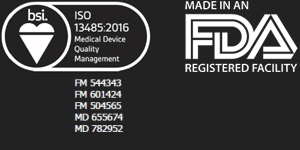MIBIZ: Funding Furthers Autocam Medical’s Efforts to Close the Skills Gap and Build a Talent Pipeline
A longtime advocate for the skilled trades, Autocam Medical, will benefit from two U.S. Department of Labor grants, the GoingPro Talent Fund, and the One Workforce for West Michigan Project.
The GoingPro Talent Fund assists in the training, developing, and retaining of current and newly hired employees. While the One Workforce for West Michigan Project is a collaborative effort designed to help the unemployed or underemployed gain in-demand manufacturing skills with a focus on automation and artificial intelligence.
The grants will help further the company’s commitment to creating a skilled workforce and their CNC Machinist Apprentice Program. The innovative year-round program requires students to complete 728 hours of classroom instruction for 91 weeks. Apprentices are also employed by Autocam Medical and must maintain a full work-schedule during the training period. Students walk away with a CNC Machinist certification, a State of Michigan certified Journeyman card and 27 college credits towards an associate’s degree.
“We recognized some time ago, that that the need for skilled workers would only continue to grow, as most machinists are aging and getting ready to retire, and fewer students are pursuing machining as a career,” said Kristy White, Autocam Medical’s Human Resource Director. “That’s why we’ve made such a significant investment in building our Department of Labor (DOL) registered CNC Machinist Program over the past several years. It’s the right thing to do for our industry, our company, and our workers. It creates a pipeline for manufacturers to secure applicants and workers to get jobs.”
A recent article in MiBiz elaborated in more detail on the many ways that the Going Pro Talent Fund, in particular, will help Autocam Medical and other Michigan companies close the widening skills gap:


